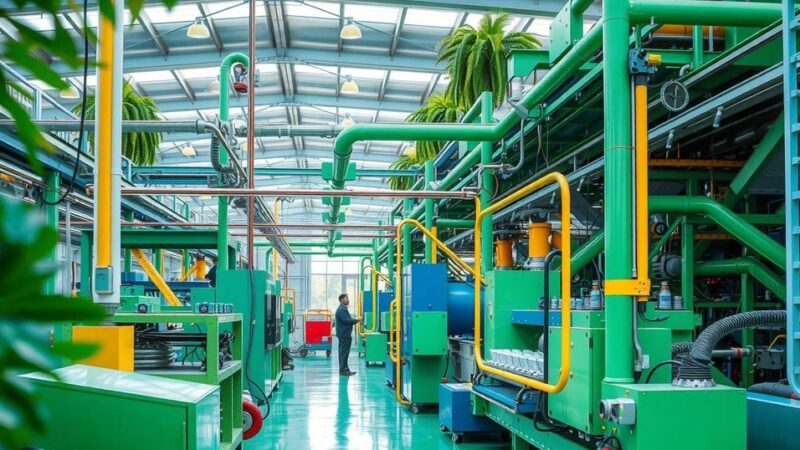Robotics is revolutionizing Nigeria by enhancing various sectors, including agriculture, healthcare, and education. Inspired by science fiction and guided by foundational principles, robotics aims to empower human capabilities through intelligent systems. Innovations like MekaMon exemplify this trend, showcasing opportunities for youth engagement in technology. Despite challenges such as training and adoption, the potential for robotics to drive economic growth and societal improvement is significant, requiring collaboration and investment for optimal outcomes.
Robotics, which integrates engineering and computer science, aims to create intelligent machines that assist humans. This field, inspired by science fiction, notably Isaac Asimov’s “I, Robot,” formulated pivotal principles guiding the development of autonomous robots. Such foundational rules resulted in technological advancements, including the creation of the first programmable robot, Unimate, in 1961. Today, robotics combines algorithms, programming, sensors, and automation, reflecting significant technological evolution.
Robots are now fundamentally transformative across various sectors, significantly enhancing efficiency. In manufacturing, companies like Amazon employ industrial robots and robotic arms to streamline operations. Homes benefit from robotic solutions, such as automated vacuum cleaners and smart security systems. Additionally, in military and law enforcement, robotics plays a multifaceted role in surveillance, reconnaissance, and soldier mobility, while aerospace engineering relies on robots for several maintenance and inspection tasks.
Recent advancements include the introduction of MekaMon, a gaming robot designed by Awarri co-founders Silas Adekunle and Eniola Edun, which aims to inspire youth engagement in STEM. The robot merges physical movement with augmented reality, enhancing gaming experiences. Following this, Nigeria’s Minister of Information announced a partnership with Awarri to develop a national language model. This further underscores the commitment to integrating innovative technology in education, fostering skills like coding among children.
Moreover, innovations in robotics are anticipated to yield considerable improvements in vital areas like agriculture and healthcare. AI-powered tools such as drones can enhance crop yields and optimize resource usage, while AI diagnostics can expedite disease detection in healthcare. Personalized learning technologies, automated administrative functions, smarter energy distribution methods, and the integration of renewable energy solutions are all poised to uplift Nigeria’s socio-economic landscape.
Prof. Bart Nnaji spoke of plans for a dedicated institute for robotics and AI studies in Nigeria, confirming the government’s interest in enhancing technological education. Recognizing the potential of robotics and AI, industry experts highlight their roles in advancing sectors like manufacturing, logistics, and customer service through automation. Adoption of these technologies is essential for feedback-driven progress and innovation.
Dr. Olusola Ayoola emphasized that robotics serves as hardware for AI, advocating for increased local adoption to enhance technological growth. He claimed that improving manufacturing precision and record-keeping through robotic interventions will lead to better operational reliability and safety. This adoption remains stifled by a lack of training and educational resources in robotics, highlighting the need for more practical training facilities and fostering local talent.
While challenges include access to knowledge, low trust in local expertise, and high importation costs of robotics kits, experts stress the need for investment in local associated technologies. Addressing these hurdles requires collaborative financial support from the government, institutions, and private sectors to realize the full potential of robotics in Nigeria.
In conclusion, the future of robotics in Nigeria presents a compelling vision of enhancement across various sectors. The integration of robotics holds transformative potential in agriculture, healthcare, education, and industry, suggesting a pathway towards economic growth and improved societal standards. However, the journey necessitates addressing existing challenges, investing in education, and fostering local talent to harness the benefits of this evolving technology.
The integration of robotics in Nigeria signifies a transformative opportunity across multiple sectors, including agriculture, healthcare, education, and manufacturing. While potential benefits such as increased efficiency and improved quality of life are evident, addressing challenges related to training, trust in local talent, and high costs of technology adoption remains critical. Solutions require collective investment and support from government, educational institutions, and private entities to maximize Nigeria’s technological advancements.
Original Source: punchng.com






